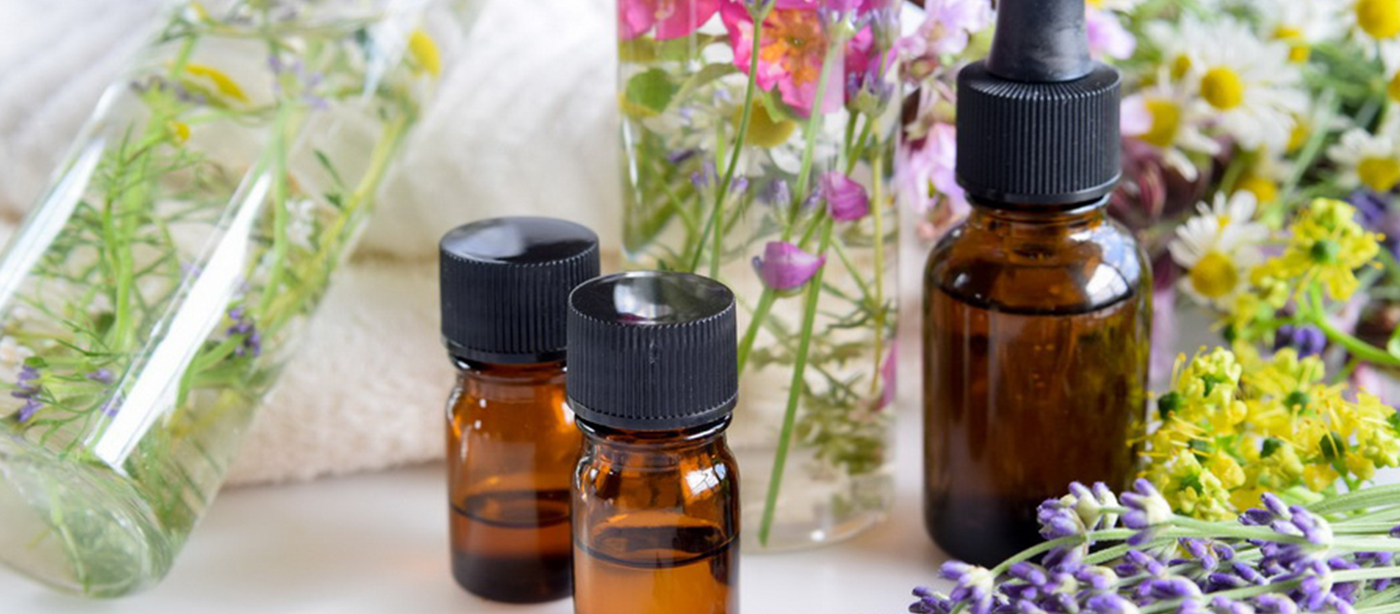In natural cosmetics, each of your formulations is a strategic choice. With so many aromatic compounds to choose from, what is right for your formulation needs? If you plan to perfume your formulas naturally, your choice will have to be made between essential oils and hydrosols.
How do you decide which of these products is best for your formula and how much should you use? What is the point of using an essential oil rather than a hydrosol, or vice versa? And what is floral water and how do you use it?
Essential oils are highly concentrated oil-soluble essences of various plants. They shouldn’t just be considered “safe” because they’re natural, because they actually contain a myriad of allergens, just like perfumes.
They are strongly aromatic – used in place of fragrances, but not necessarily as substantial or as varied – but are ideal in products claiming to be all natural.
As they are oil soluble, they can only be added to formulas where the oil can be stabilized or require solubilization to be added to aqueous continuous phases.
Essential oils are typically used in very small amounts and require oxidation protection in a finished product formulation. They should also be carefully checked against regulatory limits, as some have restricted entry levels for safety reasons.
Some of the most strongly aromatic essential oils are those of Exotic Verbena, Tea Tree, and Ylang Ylang III.
Hydrosols are the aqueous essences of many plants used to obtain essential oils. Hydrosol is the water collected during the steam distillation process of the essential oil, and as such has a very similar, albeit very dilute, flavor profile to that of the mother oil.
As they are water-soluble, they can be easily added to formulas with a high aqueous phase content and do not need to be solubilized or stabilized by emulsifying agents or surfactants.
They need to be used in much higher amounts than essential oils and don’t impart the same intensity of aroma, but can be a great way to lightly flavor a water-based product without affecting stability.
Unlike essential oils, they do not oxidize and are unaffected by heat processing, so they do not need antioxidant protection to retain their aroma over time.
The most iconic Moroccan hydrosol is Orange Blossom Water.
Floral waters are in fact a finished product and not an ingredient to be used. Floral waters are made by solubilizing an essential oil in water and have a preservative present.
They should not be used as a raw material or ingredient in a formula because the solubilizing agent could have an impact on the final formula. Floral waters are ideal for refreshing and hydrating the skin when humectants are also present or can be used as simple air and room fresheners due to their aromatic profiles.
The quintessential Moroccan floral water is Rose Water.
Are you looking for premium quality Essential Oils, Hydrosols and Floral Waters? You can find them at Prodigia! Discover our floral waters: Rose Water, and hydrosols: Orange Blossom Water. As well as our essential oils: Ylang Ylang III Essential Oil, Exotic Verbena Essential Oil, and Tea Tree Essential Oil. Our products are available for sale in bulk.



